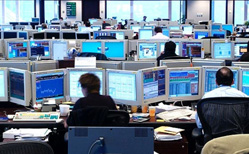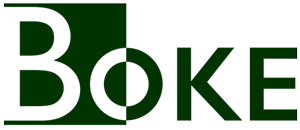People who talk about business ethics tend to split into two camps—the Cynics and the Scolds.
The Cynics
 The Cynic will tell you there is no such thing as business ethics. They’ll claim that businesspeople will do anything to make a buck.
The Cynic will tell you there is no such thing as business ethics. They’ll claim that businesspeople will do anything to make a buck.
They might claim John Maxwell‘s book, There’s No Such Thing As Business Ethics proves their point. (However, if they actually read his book, they would discover that’s not his point at all.)
The Cynics will give you two seemingly-opposite pieces of advice—either stay out of business altogether, or plunge in and swim with the sharks.
The Scolds
Most business people have had the experience of someone trying to give them unsolicited advice on how they should apply ethics to their business. Chances are, they’re not actually in business, but they’re eager to help out. Unsolicited advice can be a valuable thing, but the distinctive sign of the Scold is their implication that the answers are obvious, and the decisions are easy.
Sometimes, the condescension is so strong that it’s hard to remember the Scold probably means well. They may genuinely hope you’ll take their advice. Unfortunately, they’re almost always offering easy answers to difficult questions.
As anyone who’s actually wrestled with a business dilemma knows, actually doing the right thing isn’t easy. It isn’t easy in life, and it isn’t easy in business.
An Alternative
There is an alternative to both cynicism and scolding—let’s call it “business idealism”.
What both the Cynic and Scold forget is that, at its core, business is an intensively ethical activity.
 Modern business can seem impossibly complex. To take only one example, quite a few times over the past while, we’ve been told that some of the unregulated financial instruments that caused the 2008 financial meltdown were so complex, even the companies marketing them didn’t understand them.
Modern business can seem impossibly complex. To take only one example, quite a few times over the past while, we’ve been told that some of the unregulated financial instruments that caused the 2008 financial meltdown were so complex, even the companies marketing them didn’t understand them.
But, hidden inside all the complexities of business, is a simple—almost primal—encounter. In that encounter, we find two people trading something. Each one is giving something of value to the other, and is getting something of value in return.
 Let’s imagine two people—one bakes bread, the other catches fish. Let’s say that, given the choice, each would prefer a supper of both bread and fish.
Let’s imagine two people—one bakes bread, the other catches fish. Let’s say that, given the choice, each would prefer a supper of both bread and fish.
So each makes a choice—to give a portion of what they own, in exchange for a portion they value more. This encounter is deeply ethical in its motives, in its actions, and in its results.
It affirms the inherent value of human freedom, of choice, and of reason. It builds personal and community bonds. It extends our nurturing actions beyond the narrow circle of ourselves and our family. Both parties to the trade leave better off than they were before.
 Just as important, if they can create a community in which these sorts of trades are common and easy, those making the trade are helping create a society built on trust, one in which the people in it may flourish.
Just as important, if they can create a community in which these sorts of trades are common and easy, those making the trade are helping create a society built on trust, one in which the people in it may flourish.
Modern business, of course, is no-where near this simple. Most trades aren’t between only two people, but are actually complex webs that extend across distance and often across time. Money is almost always used at the trading intermediary. Tangible, obviously-useful goods like bread and fish are only a small portion of all the goods and services bought and sold.
It seems like, in modern business, there is endless scope for things to slide off the ethical rails.
But that scope for ethical failure was just as broad in our imagined, simple encounter. The baker could offer bread, but deliver a stone. The fisher may promise fish tomorrow in exchange for bread today but, when tomorrow comes, the fish has gone bad. The baker may have prevented a competing baker from setting up shop. The fisher may be catching too many fish, impoverishing both the lake and future generations who will depend on it.
The neighbours may have desperately needed bread, but had no fish to trade.
And the scope for ethical success is just as broad as it was in our imagined trade of bread for fish. The desire to do business ethically is a desire to find, strengthen, and extend the ethical act that lies at the core of business—a mutually beneficial exchange. And that desire remains whether what’s being traded is bread and fish, or securitized mortgage derivatives.
As people who advocate doing business ethically, our challenge is to find ways to nurture those mutually beneficial exchanges, not only in the trade of bread and fish, but in the full complexity of world we actually live in.
Published in Providence University College & Seminary’s Eye Witness, Spring 2009.
